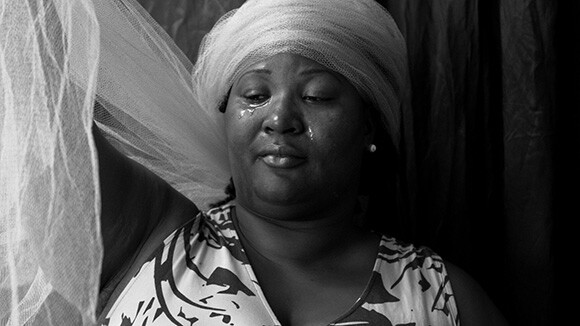Game Girls: A Poetic Take on Skid Row Documentary

"Game Girls" is a socially-conscious documentary film, following a core group of women through their daily lives navigating the downtown L.A. neighborhood known as Skid Row. But in certain artistic and structural ways, it re-imagines what the documentary film genre can be.
Writer and Director Alina Skrzeszewska has already made two films about Skid Row including the award-winning "Songs From The Nickel" (2010). It was during the filming of that project in 2006 when the idea for this movie first captured her imagination. She was doing a composite portrait of the SRO and Section 8 hotel inhabitants, and she spent a year and a half living in the Barclay and King Eddy Hotels, doing interviews with her neighbors. She noticed something she hadn't necessarily expected -- that the residents were about 95 percent men. Research revealed that there are certain social service policies in place that actually made it nearly impossible for women to navigate the system. This movie is not about that. There are a million stories a filmmaker could tell about life on Skid Row, but for Skrzeszewska and the film's creative producer Kelly Parker, these are the stories that most urgently need telling, right now.
Despite the project's conceptual and narrative foundation in true life stories and the direct testimony the women, Skrzeszewska says she "didn't want to do another straightforward documentary this time." She wanted to instead to figure out a way to involve the women in a creative, collective, collaborative undertaking in a sustained way. What evolved was a unique process, headed by drama therapist Mimi Savage, who both Skrzeszewska and Parker described as "gifted" and "amazing to watch in action, guiding the sessions with sensitivity, yet firmly taking care to always move toward something positive."

These workshops started a year ago January -- soon after a purely social event reunited Skrzeszewska with her former classmate at CalArts, Kelly Parker, who went on to produce the project in ways rooted in her own filmmaking practice, as well as extensive related experience in community organizing, and events in her own life. Though the two never really worked together at school, their interests and career paths were strangely parallel. Both were drawn to community-based projects in which marginal populations were given voices and involved in the process. When they met again, Skrzeszewska needed a producer, and Parker wanted something inspiring to create. It was on.
The workshops and earliest gatherings have been filmed from the beginning, so that Skrzeszewska's own learning process was part of the document. Rather than entering as an authorial voice, she becomes a student of her subject matter, inviting her protagonists to be her teachers. This narrative and cinematic device anchors the women as the driving force of all that comes after. But the simple retelling of the tales is not all that comes after. There's a "finished product" in mind -- a film within a film in a way. It's an art-directed, fictionalized, poetic vision that offers the true culmination of the creative workshops unfolding throughout film.



The production team walked around the neighborhood, distributed flyers, talked to people on the streets, enlisted the help of existing organizations and from places like The Lamp Community's Arts Program -- a unique situation within a larger social services organization, in which art making is encouraged and supported as part of mental and emotional health support. Lamp currently has an exhibition of its artists' work at the Armory Center for the Arts in Pasadena, and they invited the Game Girls Project to do staged readings of their "work in progress" within the installation. The next one is Sunday, March 15, 3-5pm.
Game Girls Project: A theatrical and literary workshop and collaborative documentary film happening now in Skid Row, a video trailer and crowdfunding campaign launching online, and a unique staged reading at the Armory Center for the Arts Sunday, March 15, 2015.
Dig this story? Sign up for our newsletter to get unique arts & culture stories and videos from across Southern California in your inbox. Also, follow Artbound on Facebook, Twitter, and Youtube.


